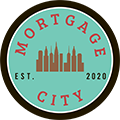
After leaving the world of “regular work,” your life as a self-employed professional has led you through a set of challenges that have helped you grow immensely. With every hurdle that you cross and each client you work closely with, your skills and passion for your profession have allowed you to make a living out of what you love. Undoubtedly, the effort and dedication you put into following through the risk of being your own boss have yielded many rewards, one of which is the opportunity to buy a home.
Whether you own a business or work as a highly-desired talent in your industry, being a self-employed individual can be lucrative when done right. If you’ve experienced success with your efforts, you are likely at the point where you can afford a healthy down payment for your dream home. And as you scout the market for options, you may be wondering about the details that will affect your purchase decision.
Among the many questions you may end up asking yourself, one particular inquiry will stand out because of how it will impact your experience: how can you get a mortgage when you’re self-employed?
The Challenge for Self-Employed Individuals
Compared to employed individuals, self-employed professionals face a different situation when getting a mortgage. After all, you are your own reference point for most of the information needed during the application process.
Read on for a guide on everything you need to know about applying for a home loan as an individual working independently.
How to Qualify for a Mortgage When You’re Self-Employed
During the application process, professionals that seek a loan to buy property are required to provide critical pieces of information such as:
- Credit scores
- Debt-to-income ratios
- Documentation of assets
- Income documents
This applies to both employed and self-employed professionals. The points diverge when it’s time to verify your financial information.
When self-employed professionals apply for a mortgage, a potential lender is much more likely to hold them to a much stricter standard during qualification. No matter how successful your own business or practice has been over the years, you must come prepared to prove your creditworthiness.
Financial Factors That Lenders Are Looking For
If you want to get your foot in the door and convince lenders that you’re worth approving for a mortgage loan, you must provide them with what they’re looking for. Generally, banks or mortgage firms look for the following:
- Income stability
- The location and nature of your self-employment
- The financial strength of your business
- The ability of your business to generate sufficient income in the future
Apart from these minimum qualification requirements, other references will help lenders gauge the creditworthiness of self-employed applicants. The types of documents used to convince a lending party such as Mortgage City are classified into two categories:
- Employment verification: This pertains to anything that will serve as proof for the fact that you’re self-employed. This includes emails or letters from clients and professional organizations, state or business licenses, and business insurance slips.
- Income documentation: This refers to various forms of proof of steady, reliable income. Professionals are urged to provide various forms such as personal tax returns and profit-and-loss forms (including Form 1120S, K-1, or Schedule C).
Conclusion
You can experience endless advantages if you are a self-employed professional or business owner, and the opportunity to own a home by way of mortgage stands out. With the help of the critical points mentioned above, you will readily secure a mortgage loan with a dependable lender.
Are you looking for a home mortgage loan program in Michigan, Florida, New Hampshire or Ohio that’s accommodating enough to take on low credit score applicants so that you can own your dream home? Get in touch with us today at (248) 930-8709 to learn more about how we can help you apply for a mortgage loan, housing loan, or refinance on your mortgage!






